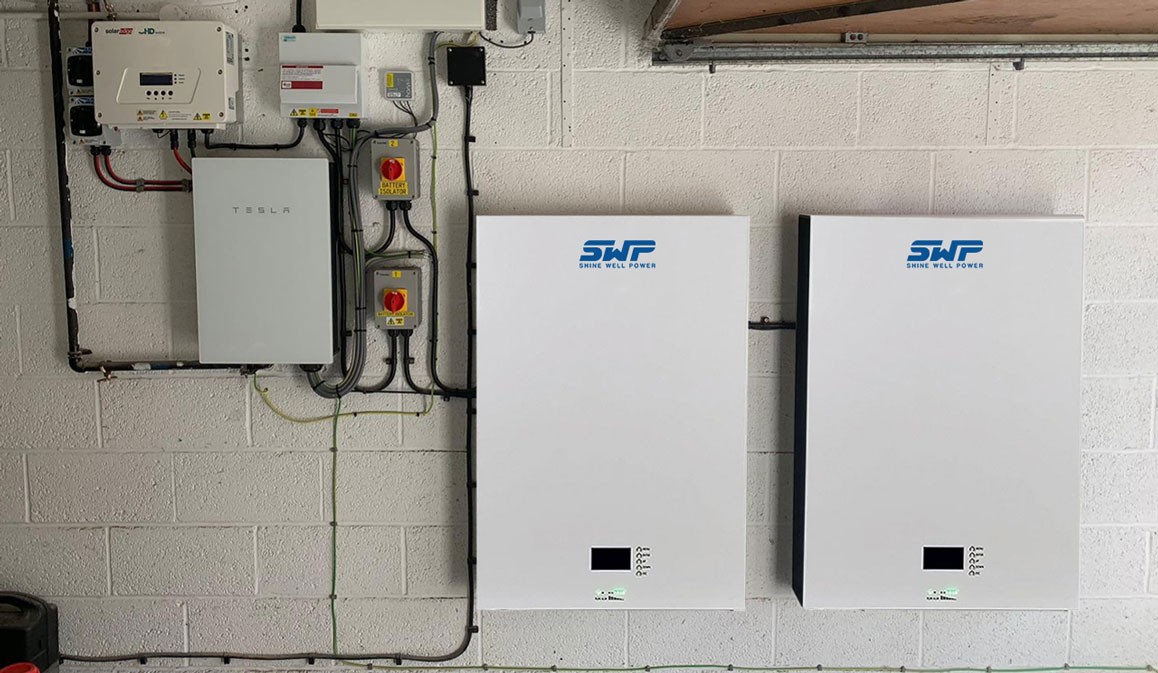Home storage system
Author:Shine well PowerRelease Date:2020-08-09Number of visitors:354
Case Study: Application of Home Energy Storage system in Washington

Case Background:
The Jack family, located in a suburb of Washington, wishes to reduce their reliance on the traditional power grid and lower their energy costs by utilizing a solar power system.
They decide to install a home energy storage battery system to store the solar energy generated during the day for use during the night or on cloudy days.So through the internet
they found SWP is a professional energy storage system manufacturer. After understanding Jack’s electricity consumption at home, we recommended two 5-kilowatt-hour
wall-mounted batteries to Jack.
Solution:
Utilization of Renewable Energy: The family installs solar photovoltaic panels and connects them to the home energy storage battery system. During the day, the solar panels
supply electricity to meet the household's immediate needs. Excess energy is stored in the battery for use during the night or when needed. This approach allows the family to
maximize the utilization of renewable energy and achieve energy self-sufficiency.
Energy Management: The home energy storage battery system is equipped with an intelligent energy management system that monitors the household's energy demands
and the solar panel's output capacity. The system automatically adjusts the battery's charging and discharging processes based on real-time demand and energy supply
conditions to ensure stable and efficient energy supply for the household.
Emergency Backup Power: In the event of a power outage or emergency, the home energy storage battery system serves as an emergency backup power source. When the
conventional power grid is interrupted, the system automatically switches to backup power mode, providing continuous electricity supply to critical devices such as lighting,
communication equipment, and refrigerators. This enables the family to cope with emergencies and maintain the operation of essential amenities.
Achievements:
Energy Self-Sufficiency: Through the application of the house energy storage battery system, the family has successfully achieved energy self-sufficiency. They can use solar
energy generated during the day and store excess electricity to meet their nighttime and cloudy day power needs, reducing their reliance on the traditional power grid.
Energy Conservation and Emissions Reduction: The installation of the home energy storage battery system enables the family to utilize renewable energy more effectively,
reducing their dependence on fossil fuels and consequently lowering greenhouse gas emissions, contributing to environmental conservation.
Emergency Backup Power: During power outages or emergencies, the home energy storage battery system provides reliable emergency backup power to the family. They
can maintain the operation of essential amenities and provide necessary lighting and communication equipment, enhancing household safety and emergency response
capabilities.
Conclusion:
This case study demonstrates the potential application of home energy storage batteries in the utilization of renewable energy, energy management, and emergency backup
power. By installing a home energy storage battery system, households can achieve energy self-sufficiency, reduce energy costs, and ensure power supply during power
outages or emergencies. This successful case provides inspiration and guidance for other households, encouraging them to adopt home energy storage battery technology
and actively participate in the utilization of renewable energy, thus contributing to sustainable development.
Previous:no more
Next:no more





